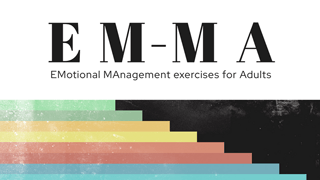
| Short descriptor of good practice |
| The magnitude of the mental health problems has been overshadowed by other public health matters. Every year over one in four European adults are affected by mental health problems. Annually, mental illnesses lead to 58 000 suicides in Europe. The estimated number of Europeans that have suffered from major depression is 18.4 millions and from specific phobias 18.5 million within the past 12 months. 4.3% of all deaths in the EU in 2016 resulted from mental and behavioral disorders. In 2016, 14% of all hospital beds in the EU were psychiatric care beds. The proportion of people who had depressive disorders was higher for women than for men in each of the EU Member States. In Spain 12% of people aged 45 and over report chronic depression. In Poland its 6% and in UK 11% (EUROSTAT data). EU governments keep allocating resources to counteract this problem, and we, as a Partnership (European Learning Network Ltd (ELN), UK. AWA, Poland and Permacultura, Spain), decided to contribute as well; Mental health problems need to be tackled at their very core. Looking at the data available, the Partnership decided to act and develop a method that European adults would be able to apply in order to counteract the problem on a personal level. The project emphasizes the improvement of emotion management in adult training. This reflects the principle that emotional intelligence, including the ability to recognize, understand, and manage emotions, is crucial for effective learning. By integrating emotional intelligence into educational processes, learners are better equipped to absorb, retain, and apply knowledge, which also enhances their inclusion and employment prospects. |
| Type of setting where good practice is delivered |
| NGO / Adult education The project’s focus on providing basic emotional management tools in non-formal education settings underscores the principle of adaptability and practicality in adult learning. Non-formal education methods, which are often more flexible and learner-centered than formal education, are particularly effective for adult learners. This approach facilitates the application of learning in real-world contexts, making education more relevant and accessible to adults. These principles are grounded in the understanding that effective learning, especially for adults, goes beyond traditional academic knowledge. It encompasses emotional intelligence, collaborative knowledge sharing, and practical, adaptable learning methods suited to adult learners’ needs and contexts. |
| Time Frame for delivery of good practice |
| Internal workshops: Through the workshops, the 3 entities ensured the transfer of the newly acquired tools and knowledge. Adult trainers who formed part of the training organized in Spain organized an internal workshop for adult people from their organization, so they benefit from the course results. This involved the participation of the partner organizations: selection of participants, internal workshop, support coaching, mentorship and peer-to-peer exchanges plus learning & development. |
| Type of learner the best practice is supporting |
| Seniors and adult educators, working with seniors. |
| Resources used as part of good practice |
| Interactive Book “Emotional Exercise Book” https://bit.ly/3u59FK5 Training course video https://drive.google.com/file/d/17bGu7Mz125E9sIQMurgeuC7GpHSIYALd/view |
| Aims and objectives of good practice |
| The objectives for the “EMMA” project were as follows: 1. To improve the management of emotions in the adult training process, which in consequence will positively impact the quality of their learning, inclusion and employment possibilities. 2. To expand knowledge on managing emotions in participating organizations. 3. To provide basic emotional management tools in non-formal education to adults and adult trainers in form of the Emotional Exercise Book. 4. To contribute to achieving high quality non-formal adult education by raising awareness of the importance of emotional management in this sector, especially targeting its decision makers. 5. To facilitate the access to the new, improved emotional management techniques to other adult trainers and adults across whole Europe. |
| Evidence as to why this was considered good practice |
| On Erasmus+ project results webpage (https://erasmus-plus.ec.europa.eu/projects/search/details/2020-1-UK01-KA204-078990) this project was selected as example of good practice. |
| 3 Key learning Principles that were used in this good practice to support senior learners |
| 1. Emotional Intelligence in Learning 2. Knowledge Expansion and Dissemination 3. Application of Non-Formal Education Techniques |
| Any additional learning that we can take from this good practice example |
| Summary video of the training course in Spain: https://www.youtube.com/watch?v=IX7vzR4YgAY |
| Any Additional Information |
| / |
